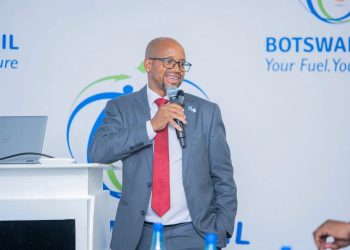
By Mutindi Lydia Jacobs
Cabinets approval of the National Upstream Petroleum Local Content Policy is being praised as a positive advancement towards maximising Namibian participation in the petroleum sector.
The Local Content Policy (LCP) acknowledges that Namibia’s petroleum resources are a valuable national asset owned by its citizens and must therefore translate into an improved quality of life for current and future generations through a robust local content framework.
What does the adoption of a LCP signify for Namibia?
The significance of a LCP is to enforce preferential treatment for local suppliers against foreign goods and services. It is a set of guidelines intended to reduce reliance on foreign expertise, products and services within the sector and to ultimately increase the value generated from the exploitation of a natural resource and encourage economic diversification.
The adoption of a LCP by Namibia signifies a strategic initiative aimed at enhancing economic sovereignty and seeks to integrate Namibian businesses and workers into the petroleum value chain. This LCP creates a valuable opportunity that should be maximized to drive inclusive growth and development.
Pragmatic Opportunities for Namibians
As the country embarks on the implementation its LCP, a pragmatic and collaborative approach will be necessary to maximise participation of Namibians whilst also benefiting investors. Below are some of the opportunities the LCP presents and the necessary preparations:
1. Education and Training: Local content requires the availability of a skilled workforce. Namibians are therefore encouraged to engage in studies related to engineering, geology, environmental sciences, logistics, etc. Institutions such as NUST offer programs aligned with these fields and PETROFUND provides scholarships and bursaries to students pursuing petroleum-related studies. Upskilling and reskilling will be vital to meet the standards required by the oil and gas industry.
2. Technical Skills: The oil and gas industry demands a wide range of technical skills. Namibians can enrol in TVET programs such as welding, instrumentation, and mechanics and seek apprenticeships or internships with established oil and gas companies operating in Namibia. Additionally, acquiring certifications such as Basic Offshore Safety Induction and Emergency Training (BOSIET), Well Control (IWCF or IADC), NDT Levels I, II, and III, as well as HSE and environmental compliance training programs can be advantageous. Once these skills have been developed in country, they can also be transferred to other economic sectors to further enhance national development.
3. Compliance with Industry Safety Standards: Namibian businesses seeking to supply goods and services to oil rigs must adhere to rigorous safety standards and training requirements. Compliance with ISO Standards such as ISO 45001 (Occupational Health and Safety) and ISO 9001 (Quality Management), along with tailored Health, Safety, and Environmental (HSE) policies for the oil and gas sector, is essential. Additionally, conducting regular risk assessments to identify and mitigate potential hazards is crucial for all companies intending to engage with this industry.
4. Networking: Those interested are encouraged to participate in conferences and summits like the Namibia International Energy Conference (NIEC) and the Namibia Oil and Gas Conference to connect with industry leaders and peers. Such platforms offer insights into the sector and potential career paths.
5. Entrepreneurship: Entrepreneurs should explore business opportunities that support the oil and gas industry, such as catering, logistics, waste management, and environmental consulting. In terms of capital financing, entrepreneurs can seek support from government initiatives such as the Equipment Aid Scheme under the Ministry of Industrialisation and Trade (MIT) that are aimed to boost production and reduce business setup costs.
6. Consultation and Collaboration: Building synergies among stakeholders is essential. The consultative approach adopted by the Ministry of Mines and Energy (MME) and the Law Society of Namibia (LSN) in their Oil and Gas Legal Training Workshop has been crucial in enhancing the legal community’s understanding of market demands, enabling them to position themselves as effective partners. This collaborative model can be replicated across other sectors with similar objectives.
Namibians must aggressively pursue the strategic opportunities presented by the approval of the LCP and develop local competencies to meet the high demands of the industry. A pragmatic, collaborative and transparent approach will be necessary to develop backward, forward and demand linkages, which are pivotal to fully integrate our nascent oil and gas sector into the national economy.
*Mutindi Lydia Jacobs is a Chief Legal Officer at the Directorate Law Reform, Policy and Legislation (MOJ) and an Advisory Board Member on the Namibia Youth Energy Forum (NYEF). She writes in her personal capacity







